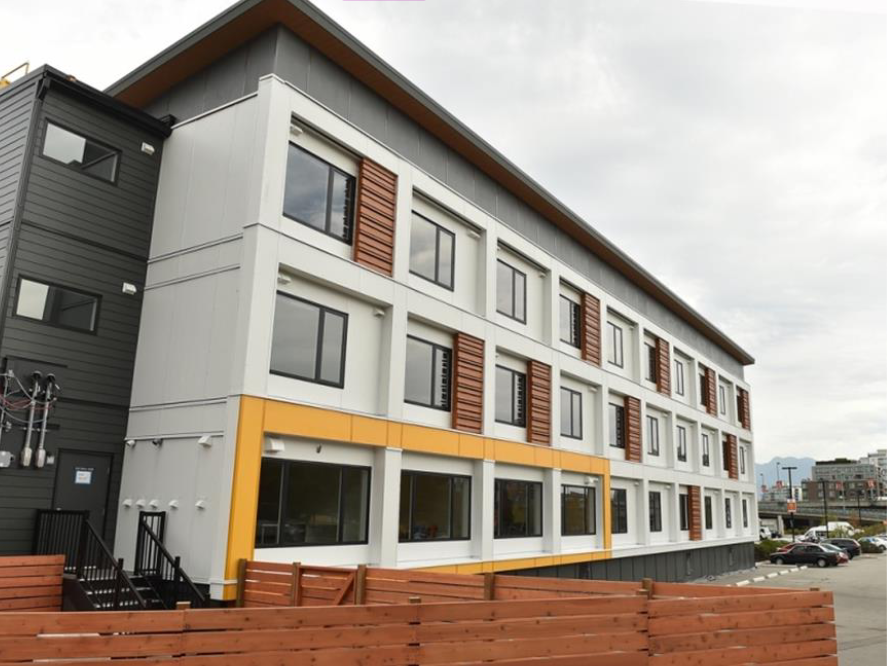The City of London, Ont., is receiving $7.5 million from the federal government as part of a larger national housing plan aimed at addressing the urgent housing needs of vulnerable Canadians across the country during the coronavirus pandemic.

The money comes as part of the Rapid Housing Initiative, a $1-billion fund announced last month by the federal government with the goal of creating 3,000 more permanent, affordable housing units.
The Trudeau government announced Tuesday that London would be among 15 Canadian cities receiving a combined $500 million as part of the initiative. The other $500 million will be up for grabs for projects that will have to be completed within 12 months of federal officials giving the green light for funding.
The 15 cities receiving money include municipalities that have the highest level of renters and the largest amount of homelessness. Toronto is receiving the lion’s share: $203 million.
According to the government, the city funding is to be used to build new multi-unit modular rentals, and to convert or renovate non-residential buildings, and abandoned or dilapidated buildings, into affordable multi-unit homes.
“This $7.5-million in funding… will be put to immediate use to support our most vulnerable through the creation of new affordable housing units,” Mayor Ed Holder tweeted on Tuesday.
The funding earmarked for London will be a major boost to the modular housing strategy that city council endorsed over the summer, said Kevin Dickins, the city’s acting managing director of housing and social services.

Get daily National news
In July, council directed city staff to explore permanent modular housing as a way to partially address the city’s affordable housing crisis, endorsing a plan to build up to 150 affordable housing units on three city-owned sites, including up to 90 through modular construction and up to 60 through regular stick-built construction.
Modular homes are prefabricated offsite and are then transported to a site for assembly.
“We’re still in conversations with CMHC at the federal level to understand exactly what the programme requirements will look like,” he said, referring to the Canada Mortgage and Housing Corporation which is delivering the Rapid Housing Initiative. “We have a pretty good sense of what the parameters will be.”
“We’re looking at all options. I think for us, where we’re leaning to is that we’re further along in our modular housing strategy than anything else, so that’s probably where we’re going to make our focus in the early stages of this Rapid Housing Initiative.”
He added that the city will also likely put forward a proposal to receive some of the $500 million of Rapid Housing Initiative funding earmarked for projects.
“We couldn’t do any of these modular projects if it weren’t for the commitment and the funding from the federal and provincial partners.”
On Monday, the province unveiled that the city would be receiving $6.26 million as part of phase two funding from the Social Services Relief Fund that was set up to help municipalities through the pandemic.
The provincial money is set to be put toward operational matters such as overflow motel and hotel rooms for London’s vulnerable, and capital funding for the installation of modular affordable housing.
The federal and provincial dollars comes as the city contends with an 8.9 per cent jobless rate and a pricey housing and rental market that is high in demand but low in supply.
The average sale price for a home in the London and St. Thomas region surpassed $500,000 for the first time in August, and hit $521,000 in September.
Rental costs have also been on the rise, with the average monthly cost of a one-bedroom unit in the city clocking in at around $1,200 as of this month, according to Rentals.ca. A two-bedroom sits at $1,581.
All this as more than 5,700 people sit on a waiting list for rent-geared-to-income housing, with another 1,057 registered in the city’s homeless management information system as being actively homeless and having used the shelter system within the last 90 days.
Dickins notes that a lack of turnover in the social housing marketplace, due in part to a pause on evictions, has led to a decline in the number of people that the city has housed.
“Where we’ve seen a spike is in the calls into our homeless prevention team through our coordinated access. We’re certainly seeing an uptick in folks that are sleeping unsheltered,” he said.
“That really is no surprise because back in March and April, provincial health guidelines indicated — and they haven’t changed yet — we had to adhere to physical distancing in emergency shelters, so that meant when there were four or five people in a room, that wasn’t going to work anymore.”
As a result, the city has been renting dozens of hotel and motel rooms for homeless Londoners and others who are vulnerable and at high-risk of infection — a plan that is set to continue until the end of March.
The city has seen roughly 200 people cycle through the hotel and motel rooms since the pandemic began, according to Dickins. A committee report from early this month stated that 26 households had been able to move from a room to housing since the city began the initiative.
Dickins notes more is still being done by the city to address London’s affordable housing crisis, including by the Housing Development Corporation which is working to advance projects it already had in the pipeline coming into 2020, including the Italian Seniors’ Project and the Indwell projects.
— With files from Katie Dangerfield of Global News and Jordan Press of The Canadian Press












Comments